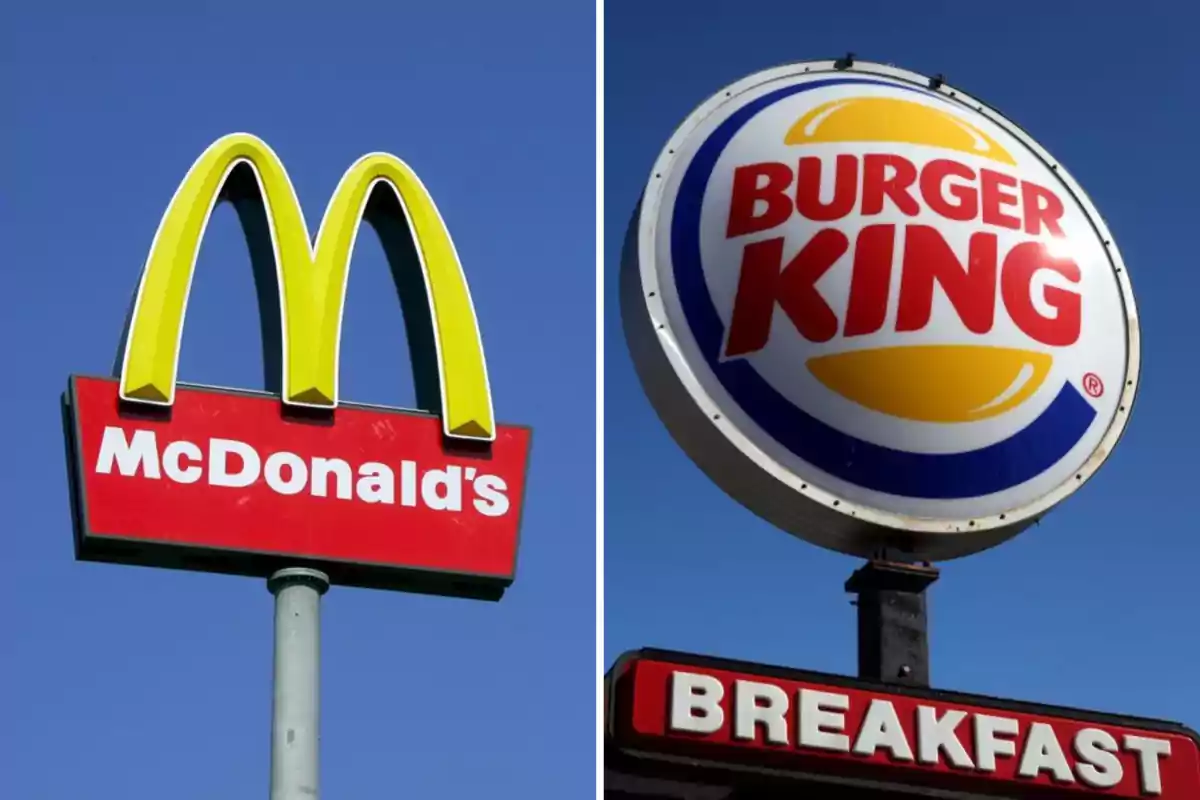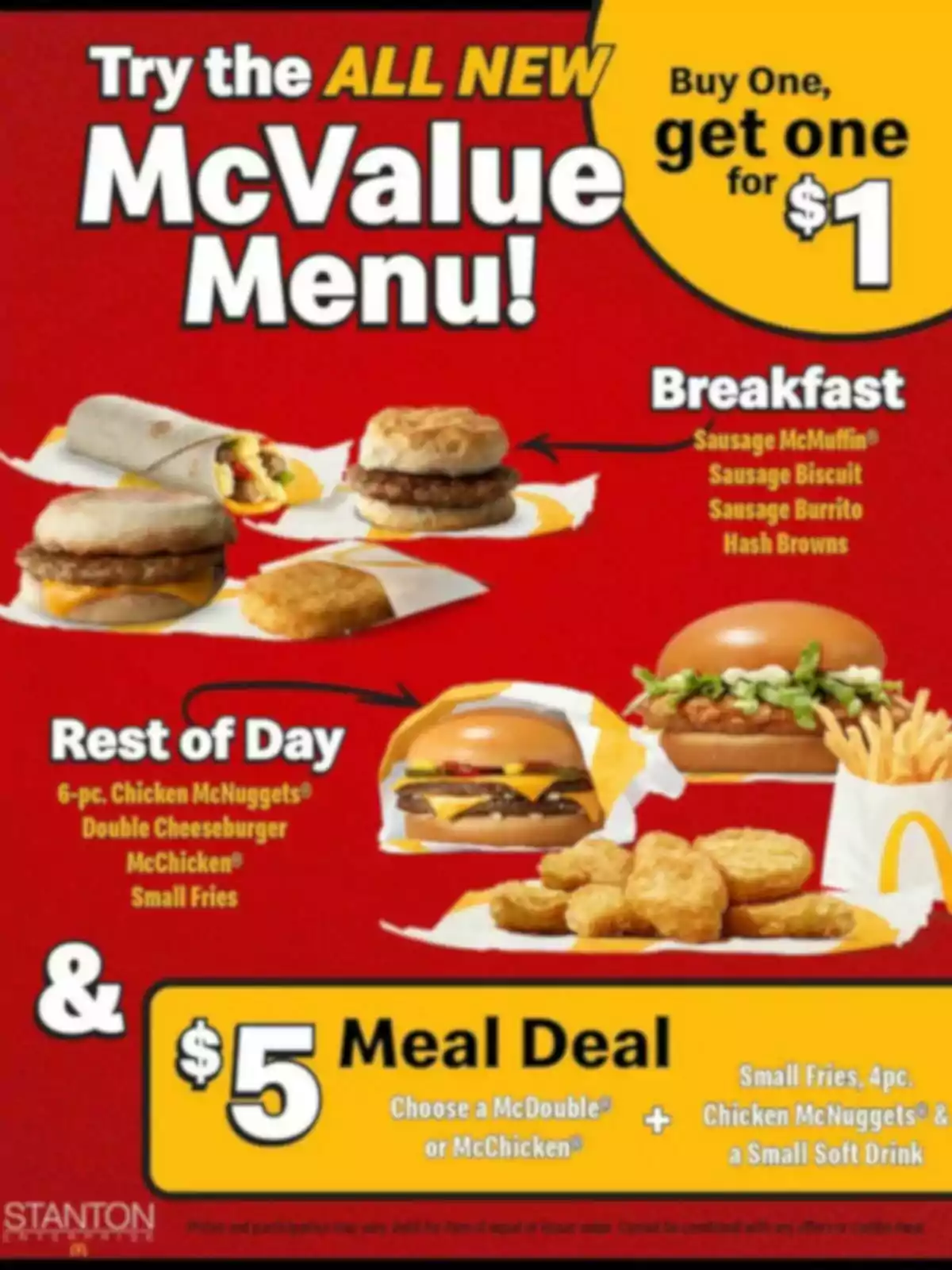In the competitive world of fast food, the largest chains are always under the radar, looking to keep their position. McDonald's, one of the most recognized, faces a hard hit in its most important market. Meanwhile, Burger King, its main competitor, watches this situation closely, celebrating what could be an opportunity to gain ground.
McDonald's decline has been reflected in its comparable sales in the U.S., which have dropped by 3.6% in the last quarter. This decline is the most pronounced since the start of the pandemic in 2020, when sales fell by 8.7%.

McDonald's Strategies to Face the Crisis
The company has attributed this decline to several factors, including bad weather and the growing economic uncertainty derived from the tariffs imposed by Trump, which could increase inflation. Consumers' economic anxiety has affected not only those with low incomes but also the middle class, who feel increasingly pressured by the situation.
In response to this situation, McDonald's has decided to focus on its more affordable options. CEO Chris Kempczinski mentioned that they will keep betting on their McValue menu and will extend their "$5 Meal Deal" promotion until the end of 2025.
The company seeks to reassure its customers, especially those feeling the impact of inflation and high interest rates. However, the economic measures do not seem to be enough to counteract the growing nervousness of consumers.

Additionally, McDonald's is betting on innovation in its menu. Among the new strategies is the permanent return of Chicken Strips, one of its most popular products, as well as the partnership with the movie "A Minecraft Movie."
At the same time, it is expanding its beverage offerings with options inspired by its CosMc's restaurants, including coffees and energy drinks. With these measures, the chain hopes to attract more customers, although the path remains uncertain.
Financial Repercussions and the International Outlook
The impact of this sales decline has also been reflected in the financial results of the chain. McDonald's shares fell by 1.3%, reaching $315.42 per share, according to McDonald's Corporation. Additionally, the company's revenue in the first quarter fell by 3%, a result below market expectations.
Despite the decline in the U.S., McDonald's continues to show growth in some international markets, such as Japan, China, and Brazil, where sales increased by 3.5%. However, the results in its main market remain a major concern.

Despite these challenges, McDonald's keeps its expectations for the future. The company plans to open 2,200 new locations this year, which could help offset the sales decline in the United States. As trade policies and inflation continue to affect consumers,
McDonald's hopes that its international expansion will drive growth. However, with the growing competition from Burger King and others, McDonald's will have to adapt quickly to stay ahead.

